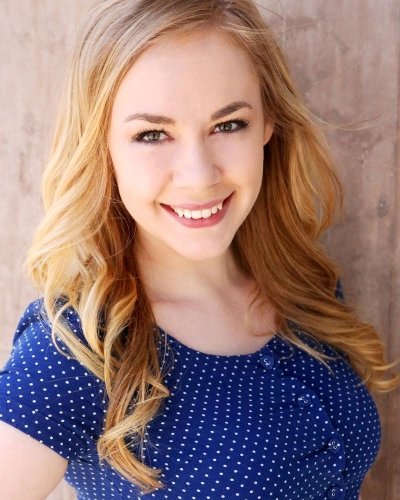Cinematic soundtracks are one thing, but what does it take to create original music for live theatre? This July, Plan Z Theatre presents David French’s Salt-Water Moon. Doing double-duty, Vancouver theatre artist Julie Casselman is not only performing on stage, she is also creating the soundtrack for the production.
Tell us about Salt-Water Moon. What attracted you to the project?
Nominated this year for a Jessie Award for her original composition to Twenty Something Theatre’s Tender Napalm, in this Q&A we find out more from Julie about Salt-Water Moon and her creative process in creating the show’s original music.
Salt-Water Moon is a Canadian play about a young couple in 1926 determining the best way to start over again. It is filled with broken trust, the history and aftermath of World War one, beautiful imagery of the maritime, sass, and, in our production, Newfoundland-inspired folk music.
Eleanor [Felton] and I knew we wanted to work together again, and had been hoping a script would jump out at us. I wouldn’t say that I feel this way all that often, but when I read Salt-Water, about halfway through it was already driving me crazy that I wasn’t speaking the words. The script asks a lot of questions about family history and choosing how to live your own life, and reality versus superstition.
You’re not only appearing in the play, but you are also creating the original music. How much of a free reign did you have with creating the music?
I have free reign in that I can bring in notated music and clips of melodies to our director and to our fiddler and experiment to my heart’s delight. However, in the end, it’s a collaborative effort between the three of us to determine what music and motifs actually serve the story and create the right tenderness or tension in different moments. The music can’t be distracting. I can compose the most complicated and intricate piece but if it doesn’t serve what the actors are doing on stage in their storytelling, then it needs to go, in my opinion.
What’s the music creation process like for you? Where do you start?
When I compose for theatre I always start with the story and its context. What is the music of the era and the culture? I then do research in that genre. Because the genre will not necessarily be what I play myself as a musician, I pay attention to the time signature, instrumentation, and key. These three things can assist so much in creating a piece that will have the right “feel” of the world, even if it’s not the type of music I’d consider myself super well-versed in.
Next, I generally go to the tone and mood of the sections I need to compose for. What are the actors feeling, and what does the director want the audience to feel? Then starts all the “lonely” work of being a sound designer and composer, on my own scribbling and notating in my room at home. Then I bring chunks in and just play around with them. Sometimes I’ll play a piece of music under a section and instantly go “nope” and other times the piece that will actually give the actors more to work with will be something I had created for a completely different section of text. It has been a while since I’ve composed for a live musician, so it’s really exciting to be able to make adjustments in the room. I can ask for tempo changes, to repeat sections, or to pluck strings, for example, whereas if I had pre-recorded music I couldn’t work as organically in the moment and impulsively edit.
Do you work in “themes” for each character or situation, or is it more organic?
Not usually my thing. I generally take a line of the text or word that sticks out at me and compose a piece inspired by it. I’ve named a lot of the pieces in our show after places that are mentioned in the script.
Is it an ongoing process in creating the music, or do you lock things in when you hit the rehearsal stage?
You know, I’d love to come into a project with the music all done when we hit rehearsal, but I’ve yet to ever have that work for me. Since the show is always changing until the moment of opening night, in order to not impose songs that “used to work” on new moments onstage, I have to be open to things always changing. Sometimes it can be super stressful, trying to write a new piece of music that didn’t exist on the morning of preview – yes, that has happened recently – but in the end that music generally ends up serving the production so much better. Over the years I’ve become better at working in an ongoing organic way. I probably wrote about fifteen minutes of music for Tender Napalm that didn’t end up in the show, but I still consider it to be Tender Napalm music because it informed other pieces I later composed.

Who are your musical influences?
When Adam Guettel, The Light in the Piazza composer, was in town he said that he tries to learn a new instrument for every song he writes. In addition to listening to his music a lot, he’s influenced me to approach writing that way. Now I really try to either write for an instrument I’ve never written for before or experiment with a new musical technique. In terms of what’s on my playlist right now, I’ve been listening to Sara Bareilles a lot more now that the Waitress musical is out.
How did you get started in creating music for the stage?
I’ve been creating music since junior high, but never for theatre until I went to university. Other than musical theatre, I wasn’t really aware that that was a thing that could be done.
While playing Lady Capulet in a school production of Romeo and Juliet, I composed a cello and choral piece. I just went to the director and said, “I think we need an epilogue. Can I try making something?” And she trusted me enough to let me try. I think the song was pretty good – just way, way too long,Like way too long. But I was in an environment where I was really encouraged to see how my other skills could be used in theatre in addition to my acting degree. So the next year I signed up for the digital recording classes at school, and got more involved in the electronic and technical side of design.
Since then I’ve been exploring how music and sound can be used to create the world of a production. It really is an exciting culmination of all these things I’ve enjoyed doing throughout my life until now – computer techie skills, music, acting, all showing up and smacking me and going “Julie, this is a thing you can do. Try it.” I would like to write more for film and dance, but so far composing for theatre has been both the most challenging and the most satisfying for me.
Salt-Water Moon plays Pacific Theatre (1440 West 12th Ave, Vancouver) from July 26-31. Visit https://planztheatre.wix.com for tickets and information.

